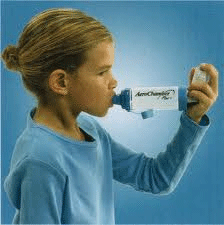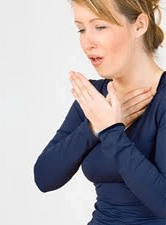

Asthma is a long-term (chronic) lung disease that causes episodes of coughing, wheezing and shortness of breath. Like all chronic illnesses, asthma cannot be cured, but it is very manageable.
According to the leading experts in asthma, the symptoms of asthma and best treatment for you or your child may be quite different than for someone else with asthma.
Asthma symptoms, also called asthma flare-ups or asthma attacks, are often caused by allergies and exposure to allergens such as pet dander, dust mites, pollen or mold. Non-allergic triggers include smoke, pollution or cold air or changes in weather. Children with asthma may show the same symptoms as adults with asthma: coughing, wheezing and shortness of breath. In some children chronic cough may be the only symptom. If your child has:

Bronchitis means that the tubes that carry air to the lungs (the bronchial tubes) are inflamed and irritated. When this happens, the tubes swell and produce mucus. This makes you cough. There are two types of bronchitis:
The most common symptom of acute bronchitis is a cough that is dry and hacking at first. After a few days, the cough may bring up mucus. You may have a low fever and feel tired. The symptoms of either type of bronchitis may include:
Acute bronchitis symptoms usually start 3 or 4 days after an upper respiratory tract infection. Most people get better in 2 to 3 weeks. But some people continue to have a cough for more than 4 weeks. Pneumonia can have symptoms like acute bronchitis. Because pneumonia can be serious, it is important to know the differences between the two illnesses. Symptoms of pneumonia can include a high fever, shaking chills, and shortness of breath.

Pneumonia is a bacterial, viral, or fungal infection of one or both sides of the lungs that causes the air sacs, or alveoli, of the lungs to fill up with fluid or pus.
Symptoms can be mild or severe and may include a cough with phlegm (a slimy substance), fever, chills, and trouble breathing. Many factors affect how serious pneumonia is, such as the type of germ causing the lung infection, your age, and your overall health. Pneumonia tends to be more serious for children under the age of five, adults over the age of 65, people with certain conditions such as heart failure, diabetes, or COPD (chronic obstructive pulmonary disease), or people who have weak immune systems due to HIV/AIDS, chemotherapy (a treatment for cancer), or organ or blood and marrow stem cell transplant procedures.